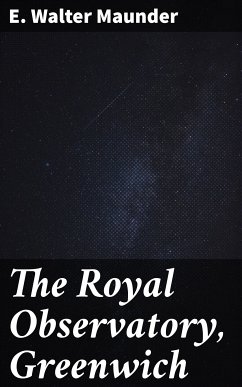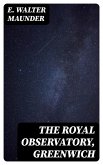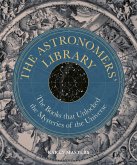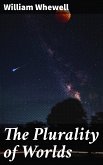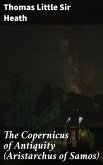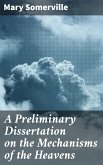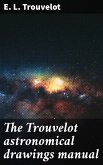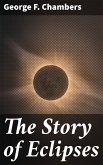In "The Royal Observatory, Greenwich," E. Walter Maunder offers a thorough examination of one of the most significant institutions in the history of astronomy. This meticulously researched work captures the essence of the Observatory's establishment and its pivotal role in advancing navigational science during the Age of Exploration. Maunder's literary style combines vivid descriptive narratives with detailed historical accounts, reflecting both the grandeur of the Observatory's architecture and the intellectual rigors of the astronomers who toiled there. Set against the backdrop of the burgeoning scientific community of the 17th to 19th centuries, the book contextualizes the Observatory as a beacon of enlightenment amid a world on the brink of astronomical breakthroughs. E. Walter Maunder, a prominent astronomer in his own right, drew from his extensive background in observational astronomy and historical research to pen this illuminating work. His fascination with celestial phenomena and his tenure as an assistant at the Greenwich Observatory imbued him with an authentic appreciation for the institution's legacy. Maunder's insider perspective allows readers to engage deeply with the unfolding narrative of scientific progress and the battles for accuracy that defined the era. For anyone interested in the rich tapestry of scientific history, "The Royal Observatory, Greenwich" is an essential read. Maunder skillfully interlaces the personal stories of the astronomers with larger historical movements, unveiling not only the significance of their discoveries but also the human passions that fueled them. This book is a treasure trove for scholars and enthusiasts alike, providing a blueprint for understanding the past while raising questions that resonate with contemporary astronomical inquiries. In this enriched edition, we have carefully created added value for your reading experience: - A succinct Introduction situates the work's timeless appeal and themes. - The Synopsis outlines the central plot, highlighting key developments without spoiling critical twists. - A detailed Historical Context immerses you in the era's events and influences that shaped the writing. - A thorough Analysis dissects symbols, motifs, and character arcs to unearth underlying meanings. - Reflection questions prompt you to engage personally with the work's messages, connecting them to modern life. - Hand-picked Memorable Quotes shine a spotlight on moments of literary brilliance. - Interactive footnotes clarify unusual references, historical allusions, and archaic phrases for an effortless, more informed read.
Dieser Download kann aus rechtlichen Gründen nur mit Rechnungsadresse in A, B, BG, CY, CZ, D, DK, EW, E, FIN, F, GR, H, IRL, I, LT, L, LR, M, NL, PL, P, R, S, SLO, SK ausgeliefert werden.

